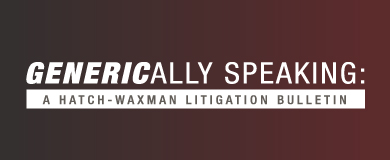- Acumen Powered by Robins Kaplan LLP®
- Affirmative Recovery
- American Indian Law and Policy
- Antitrust and Trade Regulation
- Appellate Advocacy and Guidance
- Business Litigation
- Civil Rights and Police Misconduct
- Class Action Litigation
- Commercial/Project Finance and Real Estate
- Corporate Governance and Special Situations
- Corporate Restructuring and Bankruptcy
- Domestic and International Arbitration
- Entertainment and Media Litigation
- Health Care Litigation
- Insurance and Catastrophic Loss
- Intellectual Property and Technology Litigation
- Mass Tort Attorneys
- Medical Malpractice Attorneys
- Personal Injury Attorneys
- Telecommunications Litigation and Arbitration
- Wealth Planning, Administration, and Fiduciary Disputes
Acumen Powered by Robins Kaplan LLP®
Ediscovery, Applied Science and Economics, and Litigation Support Solutions
-
April 15, 2024Robins Kaplan Named to 2024 BTI Client Service A-Team
-
April 9, 2024Robins Kaplan LLP Files Complaint Against Social Media Giants Meta, Snap, TikTok on Behalf of Spirit Lake Nation, Menominee Indian Tribe of Wisconsin
-
April 8, 2024Tara Sutton, Emily Tremblay Shortlisted for Euromoney’s Women in Business Law Awards
-
April 24, 2024IP Leadership Executive Summit
-
April 24, 2024IP Odyssey: Navigating the Latest Developments in Intellectual Property Law
-
April 30, 2024Navigating Generational Dynamics
-
March 2024e-Commerce: Pitfalls and Protections
-
March 22, 2024‘In re Cellect’:
-
March 14, 2024How Many Cases Have You Tried to a Verdict?
-
September 16, 2022Uber Company Systems Compromised by Widespread Cyber Hack
-
September 15, 2022US Averts Rail Workers Strike With Last-Minute Tentative Deal
-
September 14, 2022Hotter-Than-Expected August Inflation Prompts Massive Wall Street Selloff
Find additional firm contact information for press inquiries.
Find resources to help navigate legal and business complexities.
Eagle Pharms., Inc. v. Slayback Pharma, LLC
The disclosure-dedication doctrine barred Plaintiff from advancing its infringement claim based on the doctrine of equivalents.
May 09, 2019

Case Name: Eagle Pharms., Inc. v. Slayback Pharma, LLC, Civ. No. 18-1953-CFC, 2019 U.S. Dist. LEXIS 78146 (D. Del. May 9, 2019) (Connolly, J.)
Drug Product and Patent(s)-in-Suit: Balrapzo® (bendamustine HCl) U.S. Patents Nos. 9,265,831 (“the ’831 patent”), 9,572,796 (“the ’796 patent”), 9,527,797 (“the ’797 patent”), and 10,010,533 (“the ’533 patent”)
Nature of the Case and Issue(s) Presented: Eagle owns the patents-in-suit and sells Balrapzo, a drug approved by the FDA to treat patients with chronic lymphocytic leukemia and indolent B-cell, non-Hodgkin lymphoma. All the independent claims of the patents-in-suit require the presence of three limitations in the claimed pharmaceutical composition: (i) bendamustine or a pharmaceutically acceptable salt thereof; (ii) a pharmaceutically acceptable fluid that contains some combination of two solvents: propylene glycol and polyethylene glycol; and (iii) a stabilizing amount of an antioxidant.
Defendant Slayback filed an ANDA seeking to sell a generic bendamustine HCl drug. In response, Eagle sued Slayback for patent infringement. Slayback’s proposed bendamustine drug contains polyethylene glycol, but it uses ethanol instead of propylene glycol as its second solvent. Eagle alleges that Slayback’s drug infringes the solvent limitation under the doctrine of equivalents. Slayback moved to dismiss on the ground that the so-called disclosure-dedication doctrine bars application of the doctrine of equivalents to the solvent limitation. The court agreed and granted judgment on the pleadings in Slayback’s favor.
Why Slayback Prevailed: The common written description of the asserted patents discloses, but does not claim, ethanol as a specific alternative to propylene glycol. The written description of the asserted patents explicitly and repeatedly identifies ethanol as an alternative to propylene glycol in embodiments of the patented invention. Despite those disclosures, Eagle makes two arguments against applying the disclosure-dedication doctrine. First, it contends that Federal Circuit precedent prohibits application of the disclosure-dedication doctrine at the Rule 12(c) stage. The court disposed of Eagle’s first argument because the relied-on case (i) did not address the disclosure-dedication doctrine; and (ii) did not hold that all “questions over the proper interpretation of a patents intrinsic record are ‘not suitable’ and ‘particularly inappropriate’ for resolution on a motion to dismiss.
Second, Eagle argues that it would be inappropriate to grant Slayback’s motion because Slayback has not shown that a POSA would understand the patents’ written description to teach the use of ethanol as an alternative to propylene glycol in the claimed formulation. “Eagle’s attempt to confine the disclosure-dedication doctrine to cases where an alleged infringer’s exact formulation is disclosed in the written description, however, is contrary to established Federal Circuit precedent,” which says that the disclosure-dedication doctrine applies to unclaimed subject matter that is “identified by the patentee as an alternative to a claim limitation.” Since that was the case here, the court granted Slayback’s motion.
Related Professionals
Christopher A. Pinahs
Partner
Related Publications
Related News
If you are interested in having us represent you, you should call us so we can determine whether the matter is one for which we are willing or able to accept professional responsibility. We will not make this determination by e-mail communication. The telephone numbers and addresses for our offices are listed on this page. We reserve the right to decline any representation. We may be required to decline representation if it would create a conflict of interest with our other clients.
By accepting these terms, you are confirming that you have read and understood this important notice.
